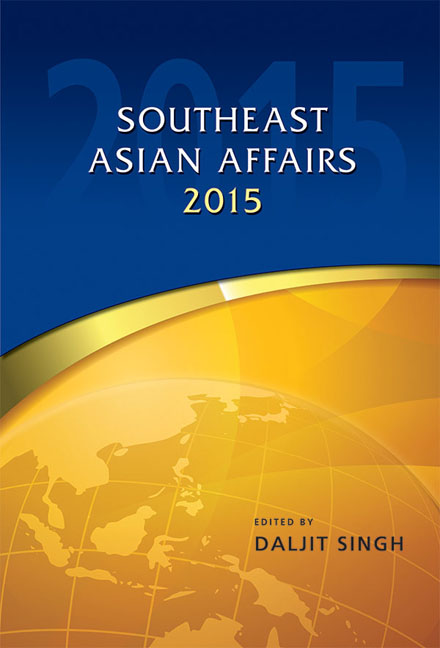Myanmar in 2014: ‘Tacking Against the Wind’
from MYANMAR
Published online by Cambridge University Press: 19 May 2017
Summary
Introduction
Having garnered widespread acclaim for its reform efforts during the first three years in office, Myanmar's transitional government in 2014 found itself increasingly under attack from critics, both at home and abroad. Opposition leader Daw Aung San Suu Kyi whose approval of President Thein Sein's reform agenda in 2011 had done much to convince sceptics that Myanmar was truly turning a new leaf now publically complained that reforms had stalled. Over the course of the year, talk of backsliding became an increasingly common refrain among human rights groups and the media. Particular concern centred on the failure of the government to revise the constitution, crackdowns on the media and social protesters, armed clashes in ceasefire areas, growing anti-Muslim ferment, and major problems of land grabbing.
The critics did not have it all their own way. In a press conference in Yangon in November, U.S. President Barack Obama explicitly backed President Thein Sein, whom he had received in the White House during better days in 2012, arguing “Myanmar's democratisation process is real”. Echoing this sentiment, the International Crisis Group later the same week warned against overstating the significance of recent difficulties:
Myanmar is four years into a transition from 50 years of authoritarian rule and chronic, grinding civil conflicts… We should not be surprised that certain areas remain problematic or new difficulties arise… Bad-news stories about Myanmar's transition are easy to find. But the good-news stories reflect a broader trend.
This more pragmatic view seemed to be reflected also in a number of opinion surveys conducted by Myanmar Egress, the International Republican Institute and the Asia Foundation in 2014, which all indicated that a majority of Myanmar people were positive about the country's political and economic prospects (although this was more apparent in the Burman heartland than in the ethnic states).
Yet, when it comes to shaping international perceptions, the media invariably have the upper hand and over the course of 2014, pressure grew on Western governments in particular, to reconsider their support of the Thein Sein government; some Western activists and parliamentarians even called for reintroducing sanctions, although Aung San Suu Kyi explicitly rejected such a dramatic step.
- Type
- Chapter
- Information
- Southeast Asian Affairs 2015 , pp. 223 - 245Publisher: ISEAS–Yusof Ishak InstitutePrint publication year: 2015

